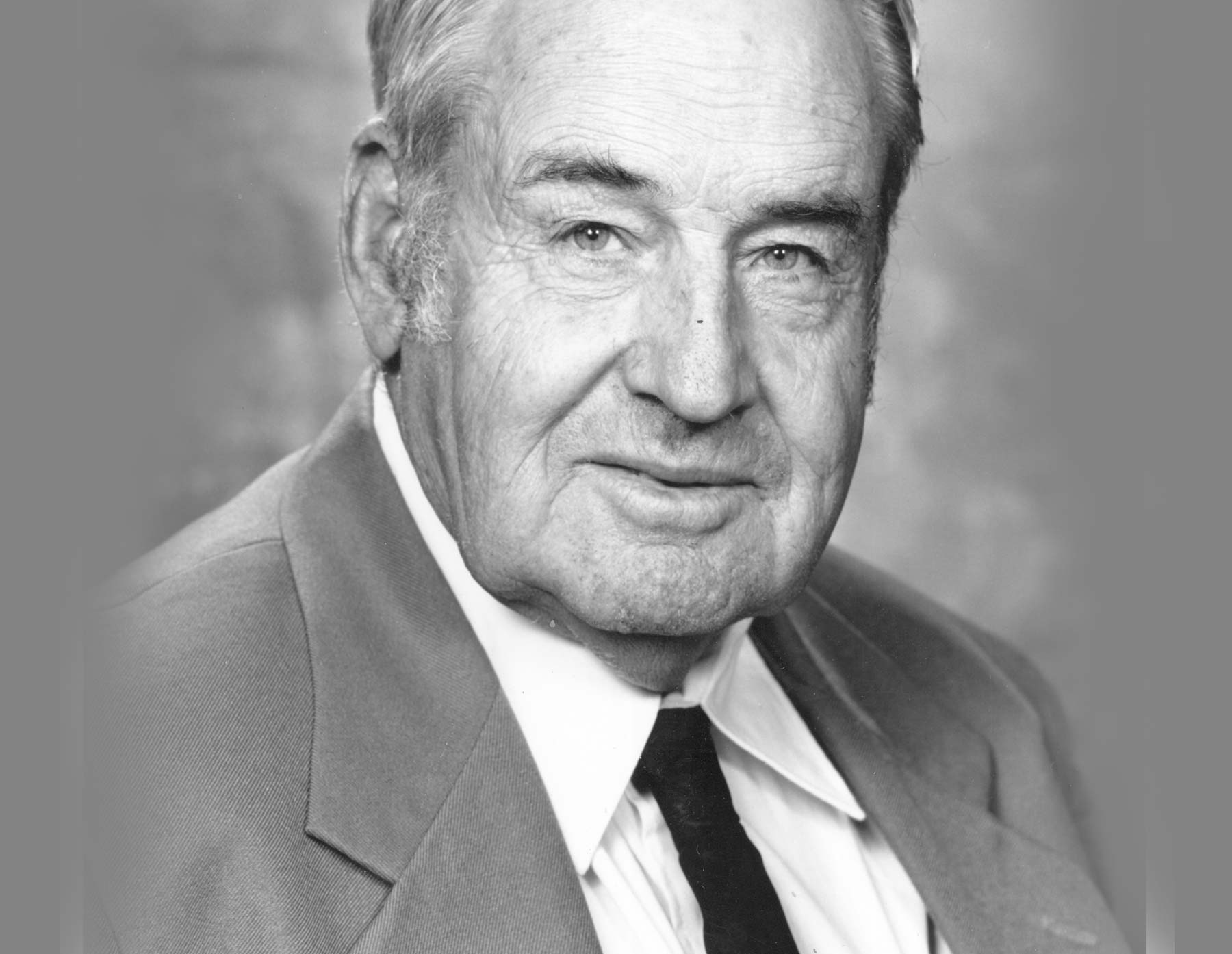Dr. George Frison was Wyoming’s first state archeologist. The Wyoming Legislature created the position in 1967 and Frison, who had recently received his Ph.D from the University of Michigan, returned to his native state to take on the role. For nearly 50 years his deep curiosity in Wyoming’s natural world has guided his research, his writing, which includes 14 books and more than 100 academic articles, and his teaching.
Frison’s memoirs are titled Rancher Archaeologist and his life was a combination of those vocations. Frison was born in Worland in 1924 and grew up on the family ranch near Ten Sleep, which sat near notable excavation sites. As a boy on the ranch he discovered fossils of dinosaurs and mammoths and interacted with the paleontologists, anthropologists and other researchers working in the area.
After high school, Frison went to the University of Wyoming but left to serve in the U.S. Navy during World War II. After the war he went back to the ranch, but maintained his interest in archaeology. At the age of 40 he finished his bachelor’s degree at UW before heading to Michigan.
In his archaeological work, Frison brought his knowledge of animals to the academic world. In fact he has been adamant that you cannot talk about the prehistoric world and hunting of that era without understanding the behavior of the prey species. His background in hunting and ranching gave him knowledge of the behavior of animals.
Not only did Frison have an impact on archaeology in Wyoming by cultivating students’ interest in the field and by providing large amounts of research about the history of this land, he also contributed to a major shift in how all archaeological research is conducted on hunting societies.
This came about due to Frison’s excavation of the Glenrock Bison Jump and the Wardell Bison Trap near Big Piney. He focused his analysis on more than just the human cultural artifacts at those sites. Frison also examined the animal’s bones, an overlooked and often times discarded artifact by others in the field. His approach was controversial and highly debated but has led to additional learning about prehistoric human hunting.
Frison has had a highly decorated career as an archaeologist, as a researcher and as a teacher at the University of Wyoming, where he spent his entire career. To honor that legacy UW created the George C. Frison Institute, a facility dedicated to studying the archaeology and culture of the High Plains and the Rocky Mountains. He continues to serve as a professor emeritus at the university.
For wildlife enthusiasts, Frison has created an impressive resource in all his writings, but particularly Survival by Hunting. Most of us can be enlightened by reading this work on Wyoming’s prehistoric animals and the people that hunted them.
Frison currently resides in Laramie.
Frison’s memoirs are titled Rancher Archaeologist and his life was a combination of those vocations. Frison was born in Worland in 1924 and grew up on the family ranch near Ten Sleep, which sat near notable excavation sites. As a boy on the ranch he discovered fossils of dinosaurs and mammoths and interacted with the paleontologists, anthropologists and other researchers working in the area.
After high school, Frison went to the University of Wyoming but left to serve in the U.S. Navy during World War II. After the war he went back to the ranch, but maintained his interest in archaeology. At the age of 40 he finished his bachelor’s degree at UW before heading to Michigan.
In his archaeological work, Frison brought his knowledge of animals to the academic world. In fact he has been adamant that you cannot talk about the prehistoric world and hunting of that era without understanding the behavior of the prey species. His background in hunting and ranching gave him knowledge of the behavior of animals.
Not only did Frison have an impact on archaeology in Wyoming by cultivating students’ interest in the field and by providing large amounts of research about the history of this land, he also contributed to a major shift in how all archaeological research is conducted on hunting societies.
This came about due to Frison’s excavation of the Glenrock Bison Jump and the Wardell Bison Trap near Big Piney. He focused his analysis on more than just the human cultural artifacts at those sites. Frison also examined the animal’s bones, an overlooked and often times discarded artifact by others in the field. His approach was controversial and highly debated but has led to additional learning about prehistoric human hunting.
Frison has had a highly decorated career as an archaeologist, as a researcher and as a teacher at the University of Wyoming, where he spent his entire career. To honor that legacy UW created the George C. Frison Institute, a facility dedicated to studying the archaeology and culture of the High Plains and the Rocky Mountains. He continues to serve as a professor emeritus at the university.
For wildlife enthusiasts, Frison has created an impressive resource in all his writings, but particularly Survival by Hunting. Most of us can be enlightened by reading this work on Wyoming’s prehistoric animals and the people that hunted them.
Frison currently resides in Laramie.
Year
2015
Inductee Teaser Photo
Frison_Teaser
Inductee Main Photo

Parent Node
4095
HOF Id
5
Node order
16
